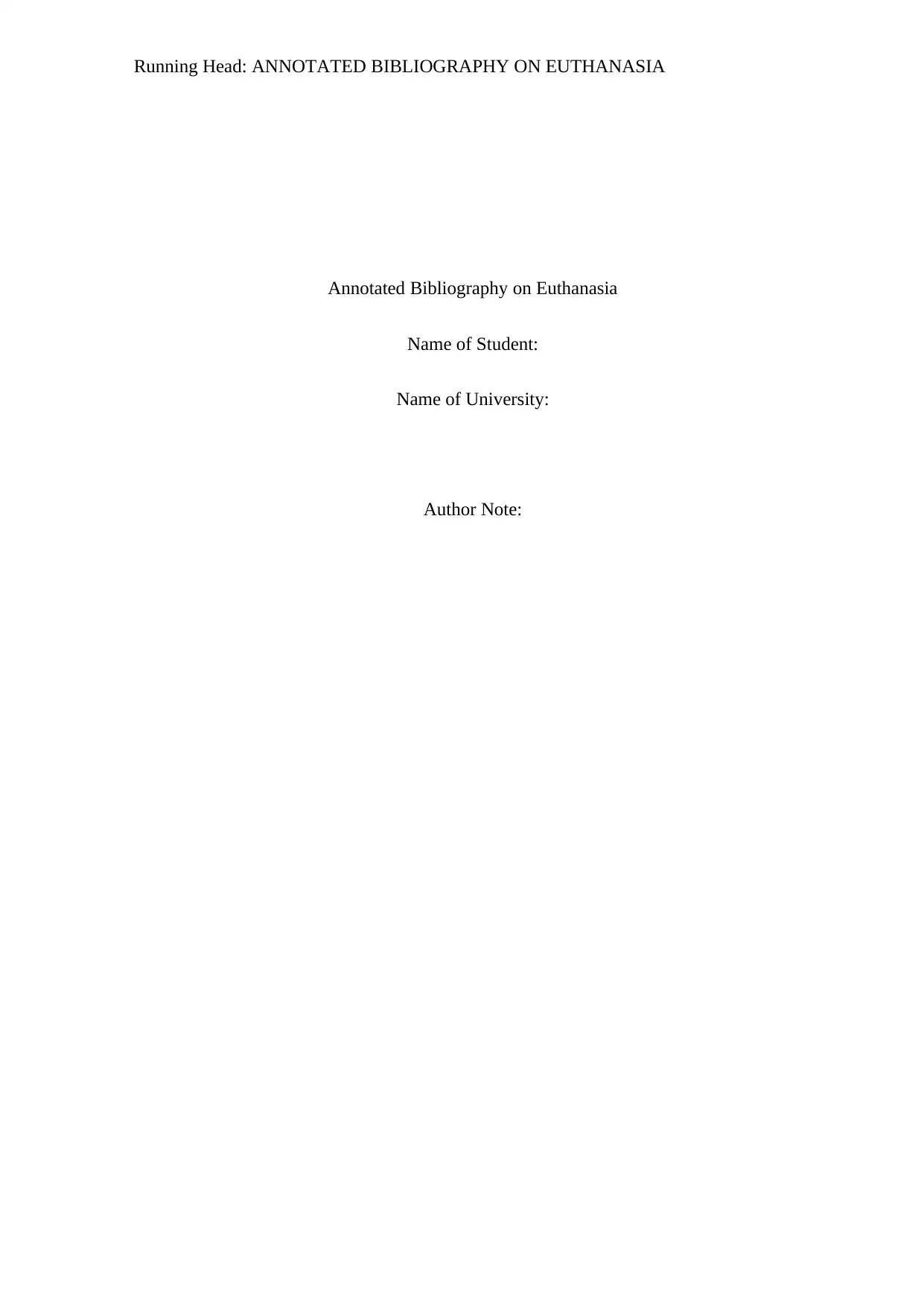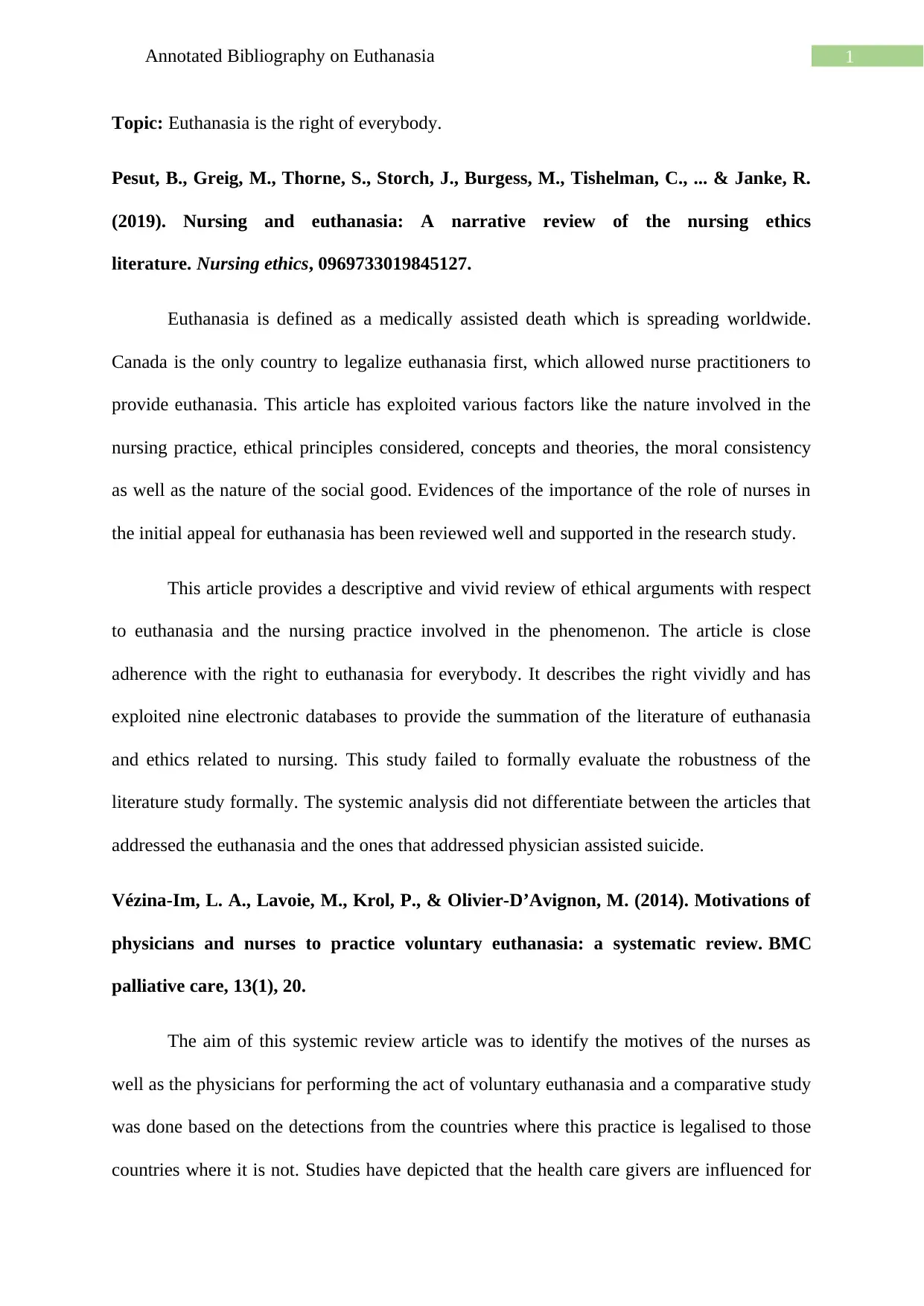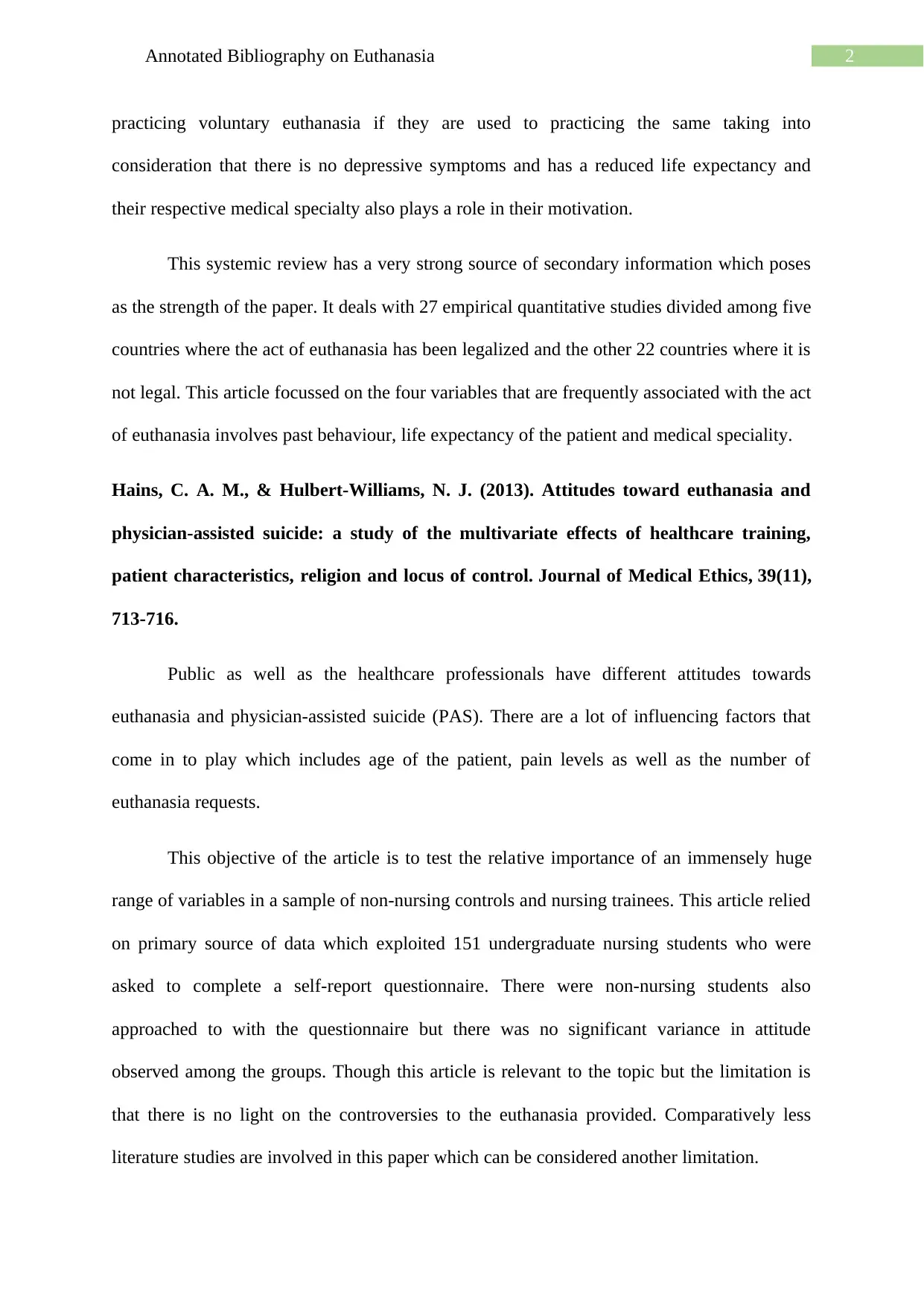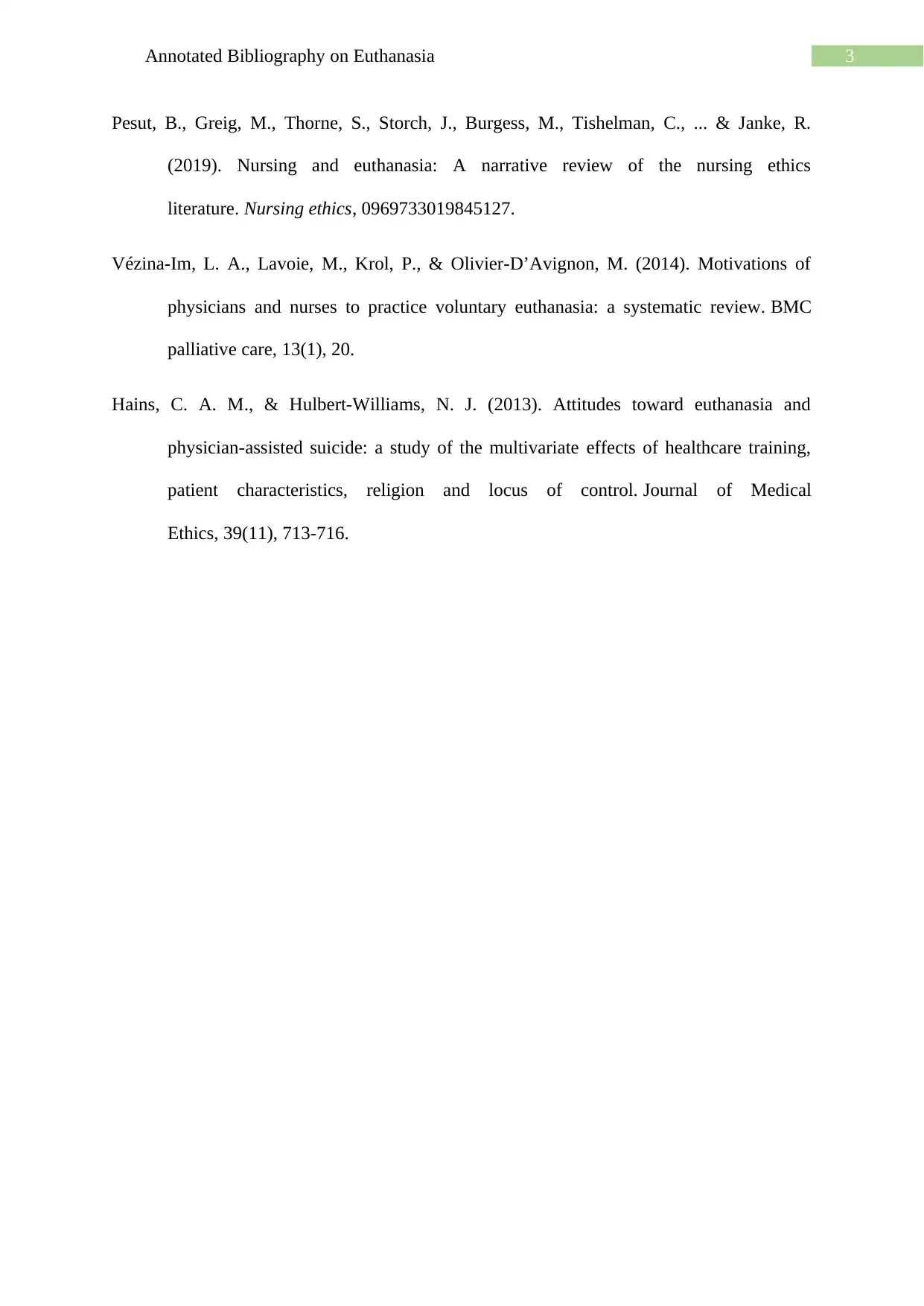Annotated Bibliography on Euthanasia and Nursing Ethics
VerifiedAdded on 2022/09/17
|4
|885
|47
Annotated Bibliography
AI Summary
This annotated bibliography examines three peer-reviewed articles related to euthanasia and its implications for nursing practice. The first article reviews the nursing ethics literature, exploring the role of nurses in euthanasia and ethical arguments surrounding it. The second article presents a systematic review of motivations of physicians and nurses for performing voluntary euthanasia, comparing practices in countries where it is legal versus illegal. The third article investigates attitudes toward euthanasia and physician-assisted suicide among healthcare professionals, considering factors like training, patient characteristics, religion, and locus of control. Each entry includes full citation information, a summary of the author's purpose and content, a comment on its usefulness for literature review and the nursing profession. The bibliography highlights the multifaceted perspectives on euthanasia, addressing ethical considerations, motivations of healthcare providers, and the influence of various factors on attitudes towards end-of-life care.
1 out of 4











![[object Object]](/_next/static/media/star-bottom.7253800d.svg)